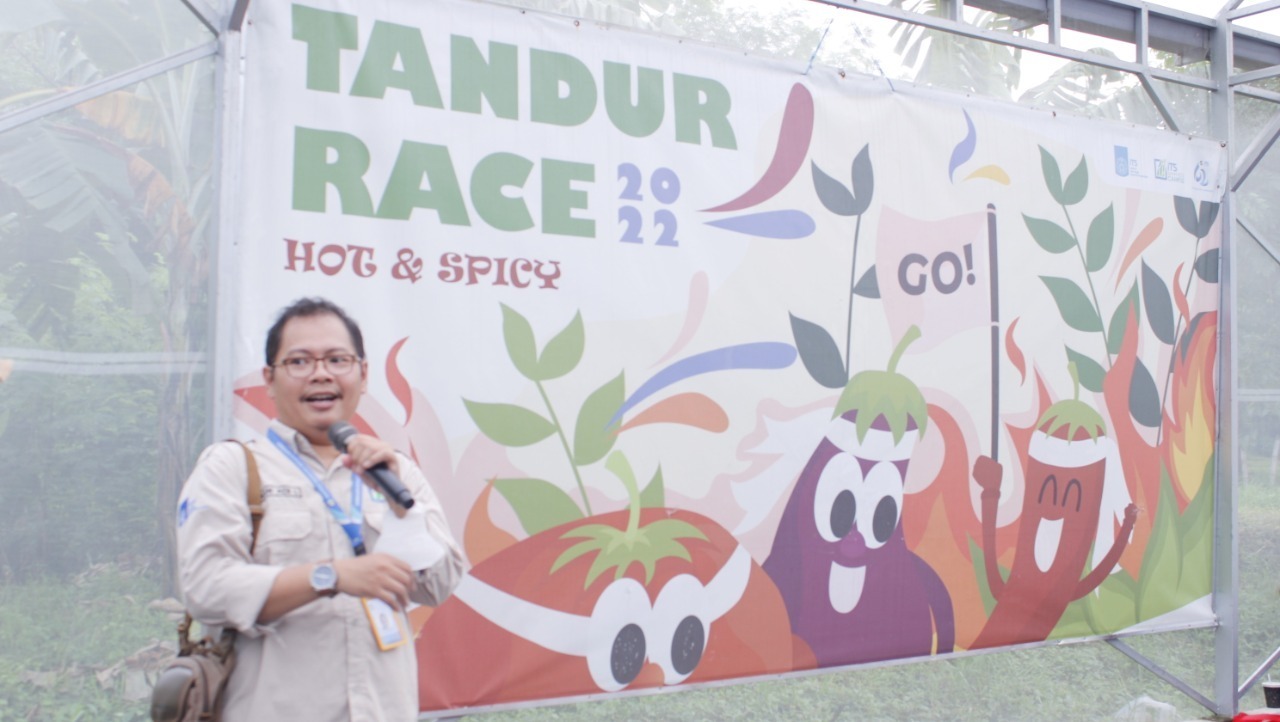Sustainable food sourcing practices prioritize local, organic, and ethical farming methods, reducing the carbon footprint associated with food production and transportation. By assisting local farmers and producers, institutions not only contribute to the community’s economic well-being but also foster environmentally responsible and socially equitable agricultural practices. Food farmed sustainably on campus raises awareness and education about the need of making responsible food choices. Institutions can inspire individuals to make more eco-friendly dietary choices by providing opportunities for community engagement and dialogue on sustainable food practices, ultimately contributing to a greener, healthier, and more ecologically conscious campus environment.
Tandur Race (Urban Farming) at ITS

ITS Urban Farming
Using a greenhouse in the Urban Farming area, the ITS Smart Eco Campus Unit invites the ITS academic community and the general public to compete in planting organic plants during an event called Tandur Race. This practice aims not only to improve planting abilities, but also to maintain the environment. This is due to the planting procedure being carried out by participants without the use of synthetic fertilizer.

Tandur Race Competition
ITS Urban Farming resembles a village on a technological campus. There is still a lot that needs to be developed, but with knowledge and vast green land at ITS, Urban Farming has great potential as well as the realization of Smart Eco Campus. ITS Urban Farming outputs can be utilized as ingredients for food preparation canteens on the ITS campus. With effective utilization, sustainability farmed food on campus will be maintained.
